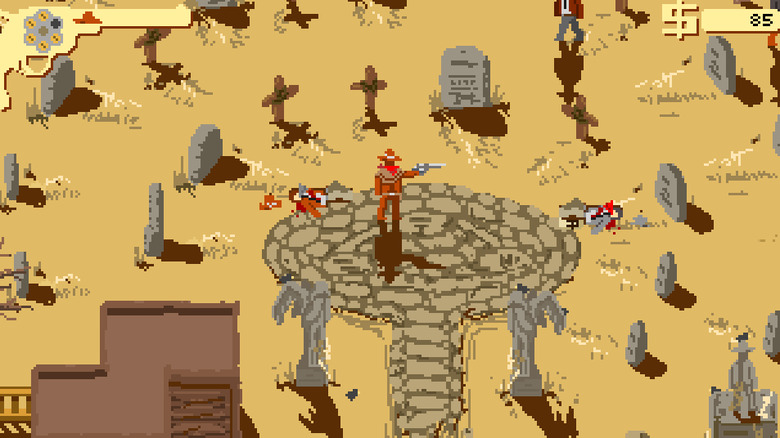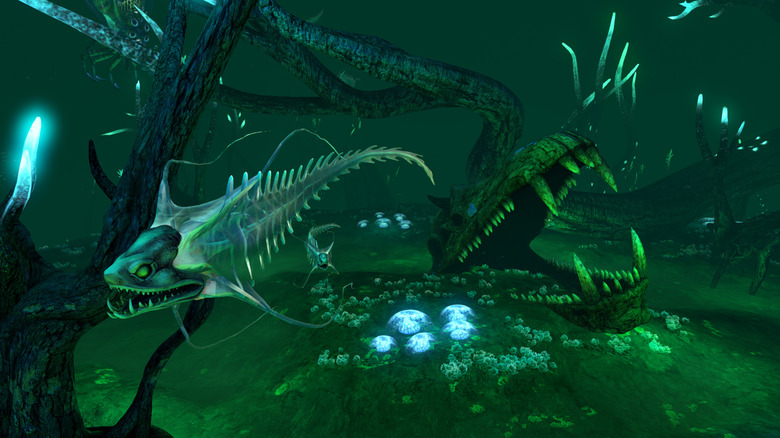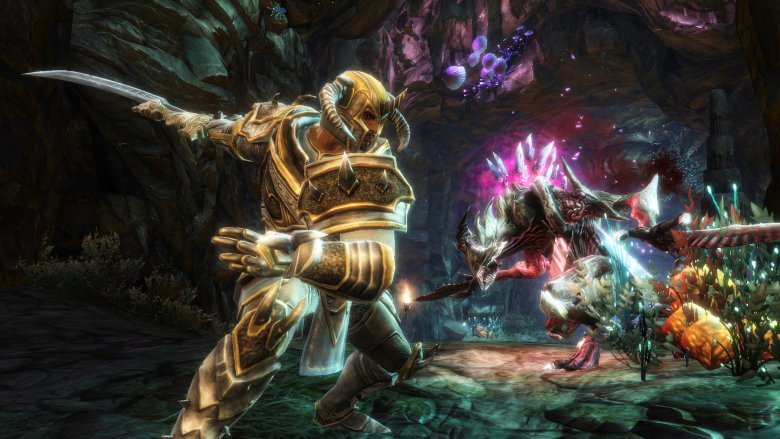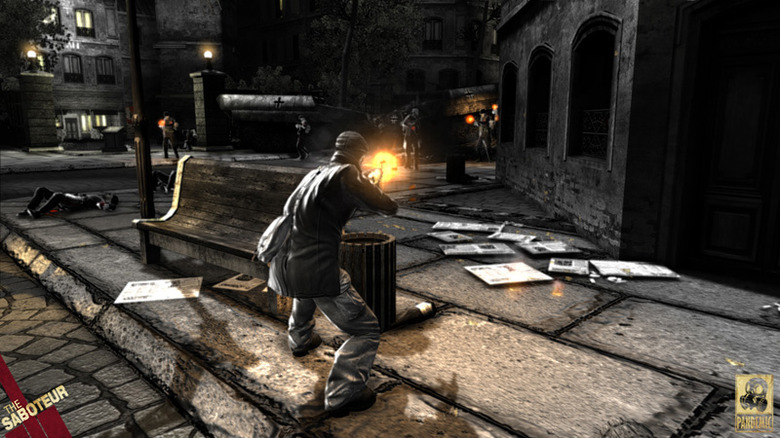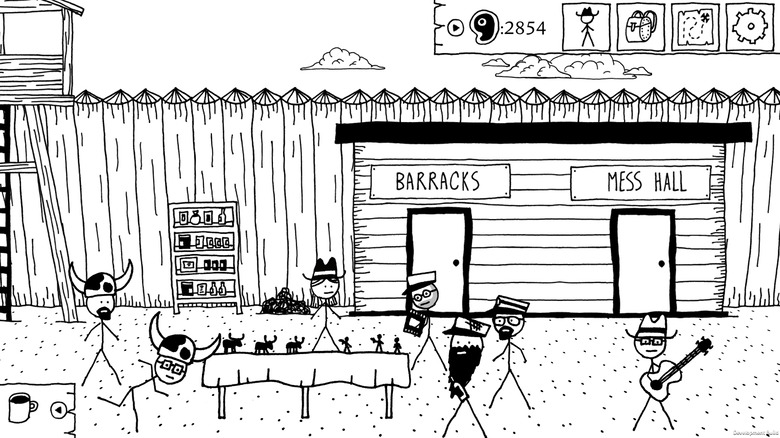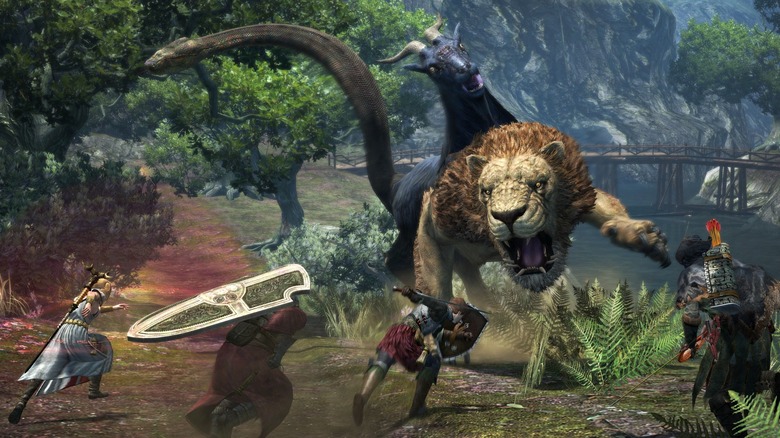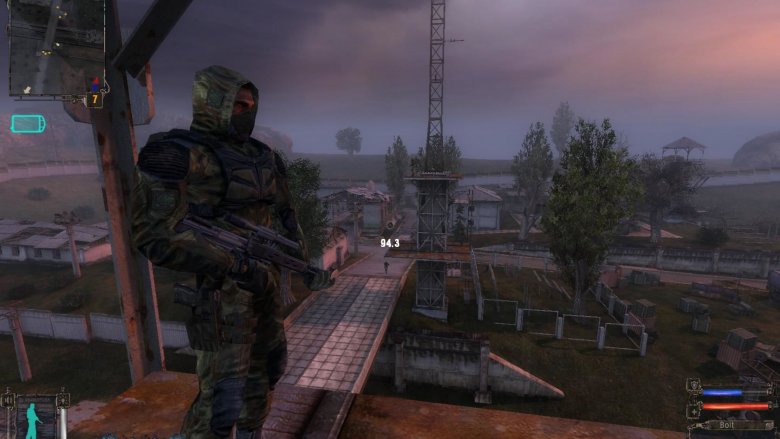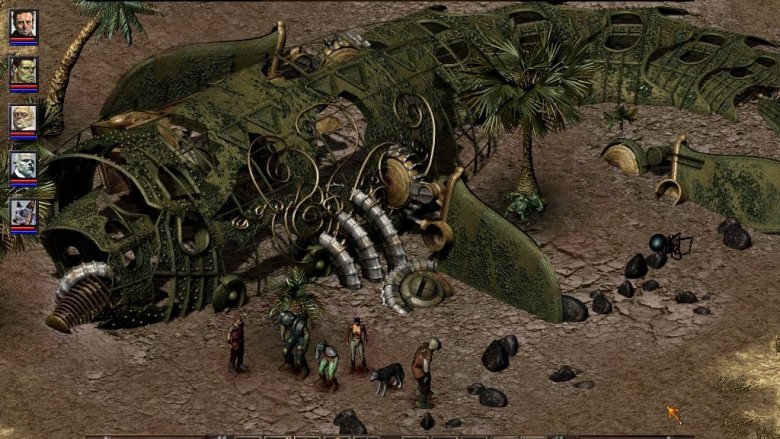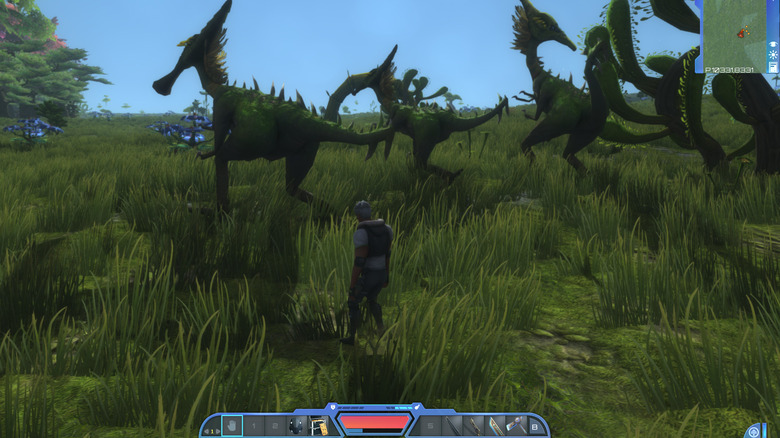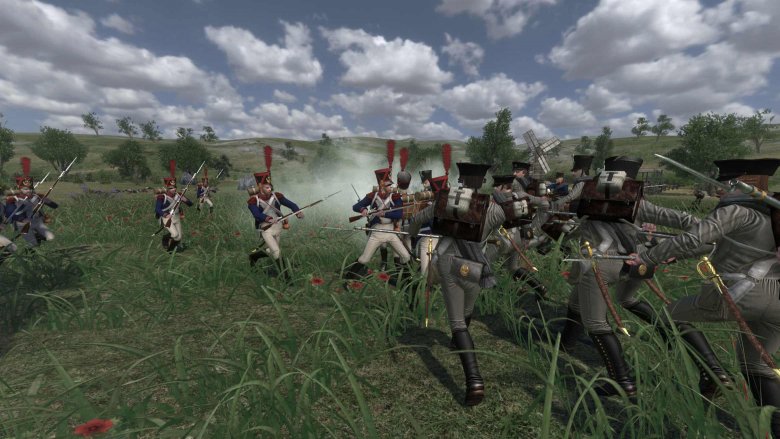The Best PC Open World Games You've Never Played
What do you do after you've completed every quest in Skyrim, scoured the United States from the Commonwealth to Los Santos, and climbed every last spire, steeple, and pyramid in Assassin's Creed?
You find someplace new to lose dozens of hours to, of course.
But that can be difficult when you've already devoured the genre's heaviest hitters. Of the top ten best-selling games of last year, half were open-world titles, some like Grand Theft Auto V still topping the list years after their first release. So if it feels like the same names get recycled again and again when talking about the genre, it's because they're still dominating into their prime.
But for every title in the limelight, there are dozens that fade into cult classics or faced total obscurity. Some quality titles released too close to other, more popular genre entries to ever stand a fighting chance, while others suffered from studio closings or prolonged development cycles. But you don't have to sift through the bunch yourself to find the few true winners. Here's a list of the best open-world PC games you probably never heard of.
Westerado: Double Barreled unfolds its tale at gunpoint
Ever been stuck in one of Bethesda's iconic dialogue trees and thought, "Man I wish I could shoot this guy"? Well, in Ostrich Banditos' Westerado: Double Barreled, you can! "Shoot whatever you want, when you want, no exceptions," boasts the game's Steam page. And pulling a gun on someone mid-conversation is not only encouraged, but required at times in the Wild West.
Westerado: Double Barreled takes a page from classic spaghetti westerns with a modern twist: this time, you get to decide how the story ends.The game adapts to the decisions you make as you hunt down the man who murdered your family, whodunnit style. Whether you decide to remain a law-abiding citizen or take matters into your own hands and go on a revenge spree, not even main characters are immune to your murderous wrath.
While it blends branching stories with quick-draw action seamlessly, mechanically things don't always mix well. The isometric graphics can make nailing your shot tricky when you can only shoot horizontally, especially when you only have three hats (yes, hats) of health before you're another nameless grave in the desert. But the sheer number of narrative paths to follow makes dying less of a disappointment and more of an opportunity to find out what else you missed.
Subnautica challenges players to survive without killing
Released earlier this year, Subnautica strands players in the ocean of an alien planet with nothing but non-lethal weapons to fend off hordes of murderous marine life. While staying alive is equally important, exploring deeper into the world's foreign coral reefs and deep-sea trenches comprise the bulk of gameplay.
Developer Unknown Worlds cited real-life gun violence like the Sandy Hook shooting, which occurred during development, as to why they didn't include deadly weapons in Subnautica. Crafting a game where everything could kill you but not vice versa forces players to come up with creative solutions to survive, and a raging debate remains over whether Subnautica maintains its in-game balance despite this. But that didn't stop nearly 2 million people from purchasing the title over its three years of Steam Early Access development.
And if you're looking to get further unsettled by Subnautica's foreign ecosystem, it also launched with VR support for the Oculus Rift and HTC Vive. As if that 60-foot translucent squid barreling toward you wasn't close enough.
Kingdoms Of Amalur: Reckoning is overflowing with lore
If Kingdoms of Amalur: Reckoning's fantasy setting gives you some serious Skyrim vibes, that's no coincidence. Developers 38 Studios and Big Huge Games convinced Ken Rolston, lead designer on both Elder Scrolls III and IV, to come out of retirement to head the game's creative department.
The result? A single-player action-RPG with lore so rich and expansive that it nearly inspired its own MMO until financial problems shuttered 38 Studios before development could be completed. In a tale crafted by New York Times-bestselling author R.A. Salvatore, players assume the role of an adventurer returned from the brink of death by an experimental magical artifact. This event destroys your formerly predestined fate and gives you the power to influence the fates of those around you, at the cost of drawing attention from more powerful, and occasionally malevolent, forces in the land.
And unlike other open-world RPGs, fighting in Kingdoms of Amalur feels just as fluid and satisfying as its storytelling. Magic and combat each has their own skill trees, unlocking dozens of power-ups and later multi-class destinies that can be linked together in any number of customizable combos to slash, bash, and cast hordes of enemies to death.
The Saboteur casts WWII in a new light
It may feel like World War II has been done a million times in video games, but The Saboteur frames the conflict from a unique vantage point. Set in Nazi-occupied France during the fighting's height, players aim to turn the tide of war by navigating the city's seedy underground and liberating rebels with well-placed explosives.
While critics panned some of its technical limitations, they applauded its period-appropriate soundtrack and interesting visuals. Rather than relying on conventional HUD displays, color dictates which areas are safer than others, with German heavy areas represented with white, black, and Nazi-flag red while French havens stand out in bright blue.
Some even called it the developer's swan song, as The Saboteur was the last title released from Pandemic Studios. The company was shuttered two months before the game's release after failing to produce a Dark Knight video game adaptation, which The Saboteur's engine would have fueled.
West of Loathing's humor slays critics and players alike
West of Loathing bucks convention at its onset, throwing out tired RPG cliche classes like wizard, rogue, or warrior in lieu of down-home, Western professions, like cow puncher or snake oiler. Past the character select screen, things only get weirder — and not just because every person you meet is a crudely drawn stick figure. Players face off against malevolent clowns and demonic cows (that punching comes in handy!) that threaten to take over the new frontier in this Wild West indie game.
Its humor matches the zany brilliance of classic adventure titles like the Monkey Island or Sam & Max series, and a punchline is never too far away, whether you're duking it out in D&D with Civil War re-enactors or drudging through a literal ghost town wrapped in not-so-literal bureaucratic tape.
This sequel to Asymmetric Publication's fantasy-themed MMO Kingdom of Loathing charmed players and critics alike, taking home PC Gamer's Best Comedy Game of 2017. It even contended against more serious genres for Best Open World Game of the year but lost out to Assassin's Creed: Origins.
RPGs get vicious with Dragon's Dogma
As far as RPG plots go, Dragon's Dogma follows a trend you're probably all too familiar with: a mighty Dragon (mind the capital D) threatens to bring the apocalypse down on your doorstep, and it's up to you, fated your-name-here, to stop it. But while it didn't break new narrative ground, Dragon's Dogma excels in fluid and ferocious combat.
No surprise either, considering the director behind the vicious hack-and-slash Devil May Cry 3, Hideaki Itsuno, headed the project. A wide selection of power-ups accommodates almost any play style, whether you prefer to climb atop massive enemies to deliver the killing blow or dish out deadly lightning bolts from a safe distance. Or go totally hands-off and let Dragon's Dogma's recruitable AI pawns — not an insult, that's their name! — take out monsters for you.
While the game runs at 30 frames per second, developers at Capcom played around with Unity and figured out how to make gameplay feel like it clipped along at a solid 60 frames per second, a technique Itsuno carried into later Devil May Cry series. And with a remastered version for PC released in 2016, slashing through deadly chimeras and hydras in Dragon's Dogma never looked better.
S.T.A.L.K.E.R.: Shadow of Chernobyl inspires creation in a nuclear wasteland
Part action game, part survival horror, part RPG, the cult classic S.T.A.L.K.E.R.: Shadow of Chernobyl lets players explore the nuclear wasteland surrounding the titular power plant. Twenty years after the world's worst nuclear disaster, a mysterious second explosion has blanketed nearby areas with deadly radiation, creating energy-infused artifacts and a black market for anyone brave or stupid enough to smuggle them out of the exclusion zone. In addition to health, players must monitor radiation levels, hunger, and bleeding levels to survive the ruined landscape.
S.T.A.L.K.E.R.'s expansive map replicates locations in and around the real-world Chernobyl nuclear power plant in Ukraine, and its weaponry mirrors that level of commitment with accurate ballistic qualities. The developer's dedication must have rubbed off on their fans, because the S.T.A.L.K.E.R. series' gigantic modding community continues to thrive today, more than ten years after the initial game's release.
One such community project, Lost Alpha: Director's Cut, seeks to faithfully recreate the slew of content cut during the years of development delays and overhauls. They struggled for years using only images and video as reference, before gaining access to developer GNC Game World's back-ups of earlier builds.
Arcanum: Of Steamworks and Magick Obscura puts a modern twist on fantasy
For those tired of typical RPG fanfare, Arcanum: Of Steamworks and Magick Obscura takes place in the fantastical Arcanum, whose inhabitants are in the midst of a quintessentially modern industrial revolution. Magic and technology like dirigibles and pistols coexist and supporters on either side vie for power in the developing world order.
Arcanum marked the first foray into gaming for now-defunct developer Troika Games, a company founded by Tim Cain, the producer, designer, and lead programmer of the original Fallout and one of IGN's Top 100 Game Creators of all time. Like Fallout, how you solve the game's hundreds of quests is up to you, whether you prefer sneaking behind enemy lines and negotiating secret truces or blasting through the front doors, guns blazing, itching for somebody to shoot. Combat can be toggled between turn-based and real-time mechanics as well depending on your preference.
If Arcanum has an issue, it's that its turn-of-the-century graphics haven't aged well. Characters' combat animations jerk inhumanely at times but move too slowly at others. But if you don't mind looking through the virtual dust of classic titles, its unique play on the fantasy genre grips your attention through its 30-hour campaign.
Planet Explorers puts you in control of the open world
For players who prefer a more malleable open-world, there's Planet Explorers by indie developer Pathea Games. This 2016 release follows in the same vein as Minecraft, allowing players to customize its landscape and terraform the environment as they see fit to accomplish the game's quests.
Set hundreds of years in the future, players take part in one of the Earth's first colony ships to the alien planet Maria. After a crash landing, the survivors must navigate the foreign terrain, defeat over 100 species of murderous creatures, and begin building a new civilization to call home.
In addition to a single-player story mode, Planet Explorers features multiplayer as well as a rogue-like mode where both the environment and spawned enemies are procedurally generated, creating a different experience with every playthrough.
While it may lack the graphical polish of AAA open-world titles, the endless ways you can build up or break down the surrounding landscape transforms every quest into a test of the imagination.
Mount & Blade: Warband is an RPG based in reality
Mount & Blade's expansive map and immersive gameplay inspired such a following that its developer TaleWorlds created a standalone expansion, Mount & Blade: Warband, a mere two years after its release. Devoid of typical fantasy fanfare, this RPG's setting remains firmly rooted in medieval times, with later DLCs exploring the Napoleonic Wars and the vikings' conquest of Scandinavia and the British Isles.
By modern standards, it offers little in way of character customization, and most of the time the game's world develops as if it doesn't even know you're there, which can be a refreshing change of pace considering most RPGs stand idle while you're off completing quests. A few in-game days could mean the difference between traveling safely through a village or getting overrun by its new bandit overlords.
Players willing to look past its dated graphics will find a dedicated modding community still churning out content eight years later. And it's astounding the lengths they've gone to, painstakingly recreating everything from Game of Thrones settings to Star Wars battles and Skyrim races and locations.

